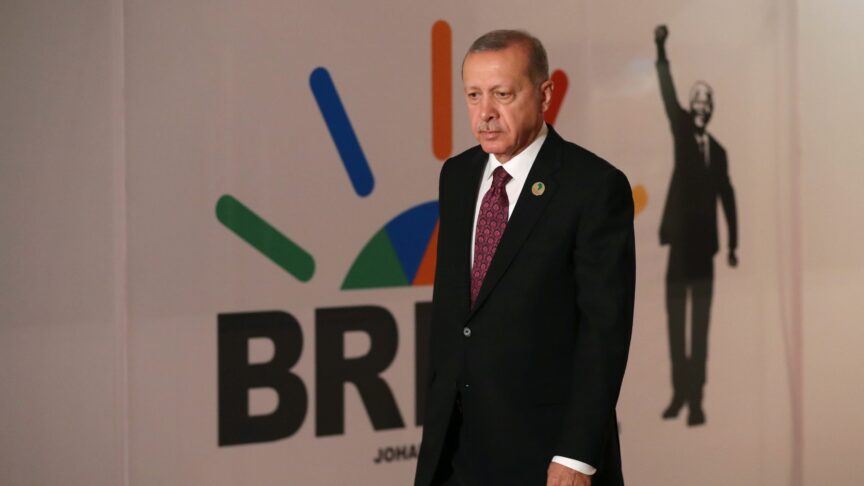Turkey: EU partner or buffer state?
After EU-Turkey summit, Turkey finds itself closer to Europe – though not necessarily as a potential EU member
Hot on the heels of a tumultuous week that saw the downing of a Russian fighter jet, the arrest of one of Turkey’s most popular journalists and the killing of a top Kurdish human rights lawyer, European Union and Turkey held a high profile summit in Brussels on the refugee crisis and renewing Turkey’s EU bid.
Leaders of the European Union met with Turkish Prime Minister Ahmet Davutoğlu on Sunday to announce a €3 billion handshake for Ankara to essentially halt the flow of refugees to Europe.
But not just that. The summit was called a “new beginning” by Turkish premier and officially pledged to “re-energise” Turkey’s EU bid, open a new chapter in accession talks, and in the final communiqué, even hinted the possibility of visa-free travel for Turks as early as October 2016.
A lot of questions remain, not least of which is the absence of any reference to Copenhagen criteria, media freedoms or Turkey’s deteriorating human rights record.
“The rule of law and press freedom should be officially on the agenda of EU-Turkey relations. It must be crystal clear that cooperation requires respect for basic rights. Without that, talks about accelerating accession will not lead to results,” said Marietje Schaake, a Dutch member of the European Parliament and a long-time advocate of Turkey’s EU accession.
Other voices from Europe and Turkey slammed the deal for the same reason. In daily Hurriyet, columnist Ahmet Hakan listed his seven reasons for being “angry” at the EU, including, Europe’s “ability to stomach the notion ‘We don’t care about democracy or freedom of press as long as refugees do not come our way.’ ”
Privately, European officials say this was largely a summit to address the refugee crises and the concept of “re-energising” Turkey’s frozen accession process was a by-product of the solution. Still, the language on the accession was substantial enough for Turkish Prime Minister Davutoğlu to announce, “a historic day” and “a new beginning” in bilateral ties.
Podcast: ECFR's World in 30 Minutes. Russian-Turkish relations, with Asli Aydintasbas & Kadri Liik
To load the audio player provided by Soundcloud, click the button below. This means Soundcloud will receive technical data about your device or browser, as well as information about your visit on this page. Soundcloud may use cookies and may transfer your data to servers outside the EU, where the level of data protection may not be equivalent to that in the EU. For more information visit our privacy policy.
As part of the deal, Europe agreed to open Chapter 17 of Turkey's accession negotiations (on the economy and monetary policy) and speed up visa-free travel negotiations. Western officials hope that the thaw in the accession process will help Europe reclaim the political leverage it lost in Turkey over the last few years. If there is progress in the ongoing Cyprus negotiations between Turkish and Greek sides, more chapters will follow in 2016.
But many aspects of the deal remain vague and unrealistic.
In the final declaration, there is talk of “energising” the accession process, but most Turkish and EU officials privately accept that the relationship is more “transactional” than membership-oriented. For a whole host of reasons, Turkey’s membership to the EU is not in the cards any time soon.
Although the idea of visa-free travel in Europe was hailed in Turkey’s pro-government newspapers as the most significant achievement of the summit, in reality it is conditional upon Turkey sealing off its borders, signing a repatriation agreement for illegal migrants, renewal of passports, and dozens of other clauses which render “October 2016 visa-free travel” an impossible promise.
Perhaps the only tangible aspect of the deal is the €3 billion for the 2.2 million refugees currently in Turkey. Initially, Ankara wanted the sum every year but agreed to EU’s offer to pay over two years. (Turkish officials note that currently only €500 million is available through the EU funds but the rest will be provided through contributions from member states.) The aid will go towards improving the living conditions of refugees in Turkey and towards strengthening Turkey’s border controls.
Turkey has been quick to deliver on its promises. In less than 24 hours after the summit ended, Turkish coast guard arrested around 1,300 migrants and several suspected smugglers in a major crackdown on the Aegean coast across from the Greek island of Lesbos—one of the main points of entry into Europe for illegal immigrants. UN High Commissioner for Refugees (UNHCR) said 431,989 refugees— mostly from Syria, Afghanistan, Iraq— have arrived in Lesbos since the beginning of this year. Other Greek islands close to the Turkish coast have received similar but lesser waves.
It is true that the deal brings Turkey closer to Europe— though not necessarily as a potential EU member, but more as a “special friend” who can provide a bulwark against the influx of refugees. This is very much a throwback to the role Turkey played during the Cold War, as a “frontier nation” facing “the Soviet threat.”
Today, the threat may have changed, but once again Turkey finds itself as an indispensible strategic asset for the West—and again without having to absorb its values and standards.
The European Council on Foreign Relations does not take collective positions. ECFR publications only represent the views of their individual authors.


